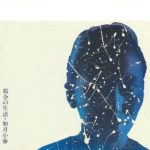
Koharu, Koharu, wherefore are thou Koharu? That’s the big question rolling around in my head. Koharu Kisaragi’s 都会の生活 Tokai No Seikatsu (which translates to: Urban Life) isn’t just an impressive, largely, unheard of album, it’s also impressive for being largely unknown in details both in what went into its creation and what happened to its creator. This true one-off by Japanese playwright, theater director, essayist and performance artist Koharu Kisaragi, who sadly passed away fourteen years after its creation from a subarachnoid hemorrhage, isn’t what’s impressive. Likewise, what isn’t impressive is that she managed to rope in one Ryuichi Sakamoto to create a phenomenal track that could out live it’s era. No, what’s impressive is that that track isn’t the most impressive thing about the whole album.

A stunning statement piece, 都会の生活 Tokai No Seikatsu features no less than three different sides of the experimental Japanese music currents coursing through at that time. The first side is perhaps the most known part of the equation: Ryuichi’s heavily Wally Badarou-inspired production for “Neo-Plant.” A song divided in two, one positive and one negative, it both sandwiches the A-side of the album and presents our most recognizable entry point.
Taking heavy liberties with the melody from Grace Jones’ “My Jamaican Guy”, “Neo-Plant <nega>” caterwhauls through oblique beats and samples before Koharu’s forceful vocals expose a strange Pop song hidden underneath all the intriguing commotion. However, it is with “Neo-Plant <posi>” where the whole structure is unveiled: one of in-between music, between American urban sample-heavy funk, percussive dancehall, and dense Japanese technopop. “Neo-Plant” is a fascinating song that gets more expansive as Koharu serves as defacto hype woman for all the ridiculously dense groove atmospherics Ryuichi tries to stuff in, throughout its course (something he wouldn’t quite tap into again until a bit later). Fittingly a song about plants feeling the pain of neglect, sounds exactly like life, crushingly, screaming out for space.
The next side you get to experience is the one helmed by neo-folk influenced Japanese music of Ayuo Takahashi. Ayuo largely performs, arranges, and produces “目をとじて”/May O Tojite a song on this album that tries to form a bridge between two strains of folk music: the music that he grew up listening to (English folk and traditional) and the music he actually had to learn to appreciate from his mother’s side of the family (Japanese folk). At the beginning Koharu recedes to the background on this one, providing floating piano melodies to the gorgeous, gliding violin melody. Then, just as you prepare to float off, Koharu dives in and deploys vocal mantras to launch the song proper. It wouldn’t be fair to call it psychedelia, but images of Spacemen 3 trying to reach their highest high don’t sound out of place as Ayuo temps the rock gods with intricate, woven guitar bits hovering around the gliding orchestration soaring right about the song’s half-way point.
The final side we get to hear in 都会の生活 Tokai No Seikatsu is the largest one spearheaded by Koharu herself and percussionist/pianist Tatsuo Kondoh. This is the side that sounds the most interesting to me. In Tatsuo, especially in groups like Unita Minima which he’d shortly helm, you had someone who came to experimental music from a thoroughly different experience than the other two. Whether as a performer with Chakra or Hajime Tachibana, Tatsuo always tried to create sonics that just sounded plain different, in more drastic terms. Willing to sound less Western than most, his playing really provided an “x” factor that more perfectly matched Koharu’s unplaceable vision. “Paraffin” gives you a clear picture of what I mean.
A haunting mixture of sampled baby sounds(!), cavernous drums, crawling percussion, and gauzy Ondes-Martenot gets even headier with Koharu’s vocal parts that seem to trickle around as atmosphere. “Paraffin” is post-ambient music for an intense sense of loss and longing. “でぱーと” takes sample-and-paste ideas on safari, through music and samples that cycle from innocence to disintegration through sounds that imitate elephants/tigers but just as easily mutate into something else. “都会の生活” equally matches its muster with music that tries to snuff itself into existence left and right. “Traumerei” ends the album on a remarkably elegiac note, with simple metronomic beats serving as a staging ground where Koharu can ease you out elsewhere with some heavenly music.
Joining up with Tatsuo in a chorus, the song ends on a tone so entirely unlike its beginning, that it makes sense as part of a larger musical journey. If there’s some knowing, deeply human, discord here, it’s one that Koharu realized through and through.
